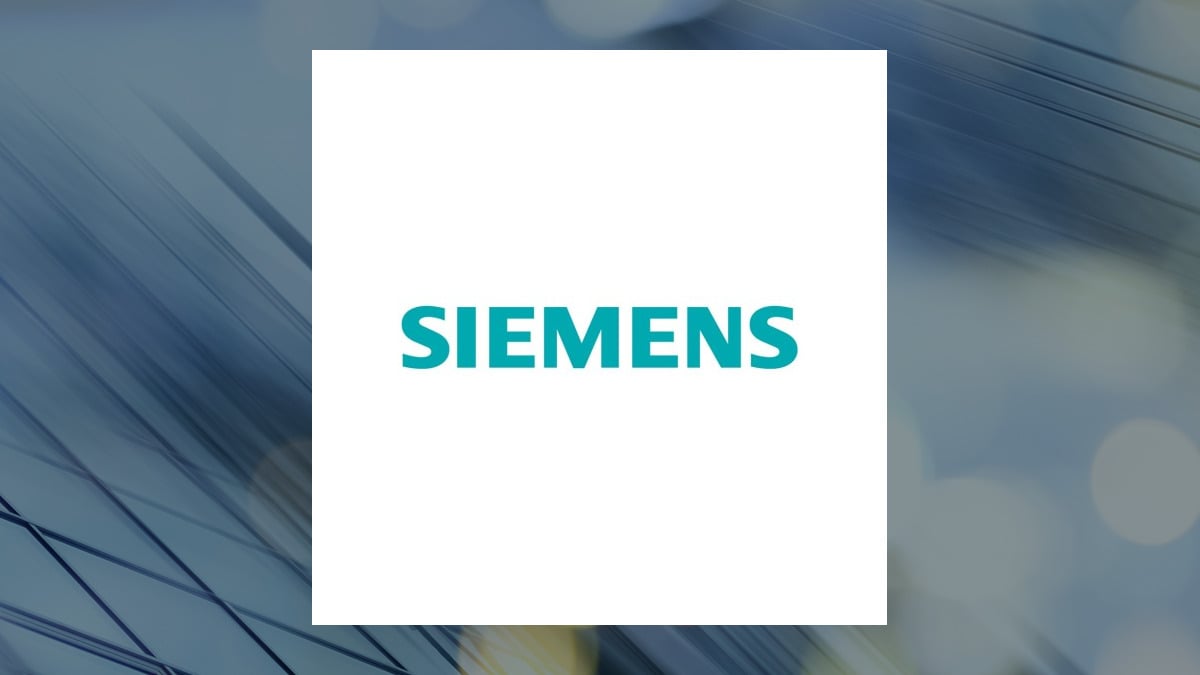Bouygues (OTCMKTS:BOUYF – Get Free Report) and Siemens (OTCMKTS:SIEGY – Get Free Report) are both large-cap industrials companies, but which is the superior investment? We will contrast the two companies based on the strength of their profitability, dividends, institutional ownership, valuation, earnings, risk and analyst recommendations.
Profitability
This table compares Bouygues and Siemens’ net margins, return on equity and return on assets.
| Net Margins | Return on Equity | Return on Assets | |
| Bouygues | 1.86% | 7.52% | 1.72% |
| Siemens | 12.59% | 12.61% | 5.01% |
Analyst Ratings
This is a breakdown of recent ratings and recommmendations for Bouygues and Siemens, as provided by MarketBeat.com.
| Sell Ratings | Hold Ratings | Buy Ratings | Strong Buy Ratings | Rating Score | |
| Bouygues | 1 | 0 | 1 | 0 | 2.00 |
| Siemens | 1 | 5 | 1 | 1 | 2.25 |
Dividends
Earnings and Valuation
This table compares Bouygues and Siemens”s gross revenue, earnings per share and valuation.
| Gross Revenue | Price/Sales Ratio | Net Income | Earnings Per Share | Price/Earnings Ratio | |
| Bouygues | $61.42 billion | 1.33 | $1.14 billion | $3.07 | 14.04 |
| Siemens | $82.35 billion | 2.70 | $9.00 billion | $6.75 | 20.57 |
Siemens has higher revenue and earnings than Bouygues. Bouygues is trading at a lower price-to-earnings ratio than Siemens, indicating that it is currently the more affordable of the two stocks.
Institutional & Insider Ownership
0.8% of Siemens shares are held by institutional investors. Strong institutional ownership is an indication that hedge funds, endowments and large money managers believe a stock will outperform the market over the long term.
Risk and Volatility
Bouygues has a beta of 0.47, suggesting that its stock price is 53% less volatile than the S&P 500. Comparatively, Siemens has a beta of 1.17, suggesting that its stock price is 17% more volatile than the S&P 500.
Summary
Siemens beats Bouygues on 13 of the 14 factors compared between the two stocks.
About Bouygues
 Bouygues SA, together with its subsidiaries, operates in the construction, energy, telecom, media, and transport infrastructure sectors in France and internationally. The company designs, builds, renovates, operates, and deconstructs building, infrastructure, and industrial projects; develops urban planning, residential, and commercial projects; builds and maintains roads and motorways, airport runways, ports, industrial logistics hubs, external works and amenities, reserved-lane public transport, recreational facilities, and environmental projects, as well as undertakes civil engineering, road safety, and signaling activities; produces, distributes, sells, and recycles aggregates, emulsions, asphalt mixes, ready-mix concrete, and bitumen; construction, renewal, and maintenance of rail networks; and installation and maintenance of pipes and pipelines. It also provides design, installation, and maintenance services in various fields that include cooling and fire protection, digital and ICT, electrical, and mechanical and robotics, as well as heating, ventilation, and air conditioning. In addition, the company produces TF1, TMC, TFX, TF1, and LCI complementary TV channels; operates Ushuaïa TV, Histoire TV, TV Breizh, and Serieclub channels; produces, broadcasts, and distributes content; operates la seine musical entertainment and concert venue; and entertainment and leisure comprising licenses, podcasts, music production, and live events. Further, it offers telecom services; and mobile and fixed network services. The company was founded in 1952 and is based in Paris, France.
Bouygues SA, together with its subsidiaries, operates in the construction, energy, telecom, media, and transport infrastructure sectors in France and internationally. The company designs, builds, renovates, operates, and deconstructs building, infrastructure, and industrial projects; develops urban planning, residential, and commercial projects; builds and maintains roads and motorways, airport runways, ports, industrial logistics hubs, external works and amenities, reserved-lane public transport, recreational facilities, and environmental projects, as well as undertakes civil engineering, road safety, and signaling activities; produces, distributes, sells, and recycles aggregates, emulsions, asphalt mixes, ready-mix concrete, and bitumen; construction, renewal, and maintenance of rail networks; and installation and maintenance of pipes and pipelines. It also provides design, installation, and maintenance services in various fields that include cooling and fire protection, digital and ICT, electrical, and mechanical and robotics, as well as heating, ventilation, and air conditioning. In addition, the company produces TF1, TMC, TFX, TF1, and LCI complementary TV channels; operates Ushuaïa TV, Histoire TV, TV Breizh, and Serieclub channels; produces, broadcasts, and distributes content; operates la seine musical entertainment and concert venue; and entertainment and leisure comprising licenses, podcasts, music production, and live events. Further, it offers telecom services; and mobile and fixed network services. The company was founded in 1952 and is based in Paris, France.
About Siemens
 Siemens Aktiengesellschaft, a technology company, focuses in the areas of automation and digitalization in Europe, Commonwealth of Independent States, Africa, the Middle East, the Americas, Asia, and Australia. It operates through Digital Industries, Smart Infrastructure, Mobility, Siemens Healthineers, and Siemens Financial Services (SFS) segments. The Digital Industries segment provides automation systems and software for factories, numerical control systems, servo motors, drives and inverters, and integrated automation systems for machine tools and production machines; process control systems, machine-to-machine communication products, sensors and radio frequency identification systems; software for production and product lifecycle management, and simulation and testing of mechatronic systems; and the Mendix cloud-native low-code application development platform. The Smart Infrastructure segment offers products, systems, solutions, services, and software to support sustainable transition in energy generation from fossil and renewable sources; sustainable buildings and communities; and buildings, electrification, and electrical products. The Mobility segment provides rail passenger and freight transportation, such as vehicles, trams and light rail, and commuter trains, as well as trains and passenger coaches; locomotives and solutions for automated transportation; products and solutions for rail automation; electrification products; maintenance and digital services; and digital and cloud-based solutions, and related services. The Siemens Healthineers segment develops, manufactures, and sells various diagnostic and therapeutic products and services; and provides clinical consulting and training services. The SFS segment offers debt and equity investments; leasing, lending, and working capital, structured, equipment, and project financing; and financial advisory services. Siemens Aktiengesellschaft was founded in 1847 and is headquartered in Munich, Germany.
Siemens Aktiengesellschaft, a technology company, focuses in the areas of automation and digitalization in Europe, Commonwealth of Independent States, Africa, the Middle East, the Americas, Asia, and Australia. It operates through Digital Industries, Smart Infrastructure, Mobility, Siemens Healthineers, and Siemens Financial Services (SFS) segments. The Digital Industries segment provides automation systems and software for factories, numerical control systems, servo motors, drives and inverters, and integrated automation systems for machine tools and production machines; process control systems, machine-to-machine communication products, sensors and radio frequency identification systems; software for production and product lifecycle management, and simulation and testing of mechatronic systems; and the Mendix cloud-native low-code application development platform. The Smart Infrastructure segment offers products, systems, solutions, services, and software to support sustainable transition in energy generation from fossil and renewable sources; sustainable buildings and communities; and buildings, electrification, and electrical products. The Mobility segment provides rail passenger and freight transportation, such as vehicles, trams and light rail, and commuter trains, as well as trains and passenger coaches; locomotives and solutions for automated transportation; products and solutions for rail automation; electrification products; maintenance and digital services; and digital and cloud-based solutions, and related services. The Siemens Healthineers segment develops, manufactures, and sells various diagnostic and therapeutic products and services; and provides clinical consulting and training services. The SFS segment offers debt and equity investments; leasing, lending, and working capital, structured, equipment, and project financing; and financial advisory services. Siemens Aktiengesellschaft was founded in 1847 and is headquartered in Munich, Germany.
Receive News & Ratings for Bouygues Daily - Enter your email address below to receive a concise daily summary of the latest news and analysts' ratings for Bouygues and related companies with MarketBeat.com's FREE daily email newsletter.
